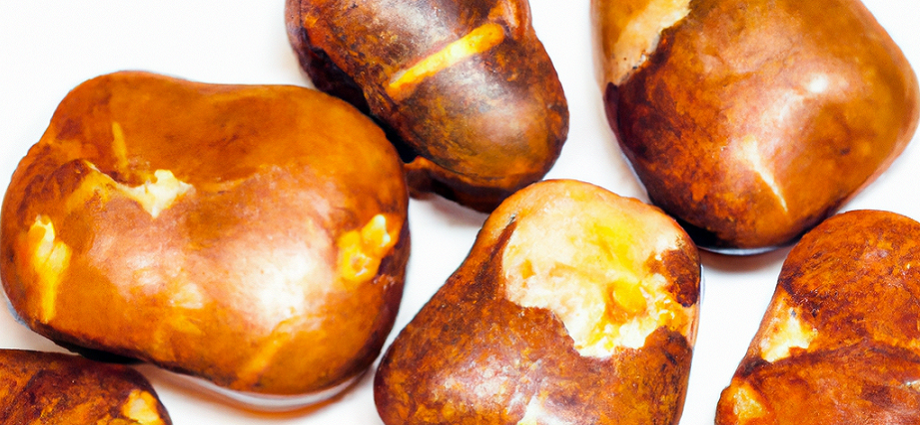Gallstones are a common problem that affect millions of people around the world. They are hard lumps that form in the gallbladder, a small organ below the liver. Most of the time, gallstones don’t cause any symptoms, but some people may feel pain, nausea, or vomiting. You might wonder, though, can gallstones also make you feel tired and dizzy?
Understanding Gallstones and Their Causes
Gallstones are hard, pebble-like lumps that form in the gallbladder. They can be as small as a grain of sand or as large as a golf ball, and they can cause different symptoms depending on their size and where they are located.
Gallstones form when there’s an imbalance in the substances that make up bile, such as bile salts and cholesterol. Bile is a liquid that helps digest fats in the small intestine. When these substances aren’t in the right balance, they can harden and form gallstones.
Things that increase the risk of getting gallstones include being overweight, eating a high-fat diet, losing weight quickly, and having certain health conditions like diabetes or liver disease. Gallstones are more common in women than in men and are more likely to occur in people over 40.
Can Gallstones Make You Tired and Dizzy?
Now let’s get to the heart of the matter: can gallstones make you tired and dizzy? The short answer is yes, they can. When gallstones cause inflammation or infection in the gallbladder, a person may experience fatigue and dizziness as well as other symptoms such as:
- Pain in the upper right abdomen
- Nausea and vomiting
- Fever and chills
- Jaundice (yellowing of the skin and eyes)
The fatigue and dizziness associated with gallstones are often the result of the body’s immune response to the inflammation or infection. When the immune system is activated, it can cause a range of symptoms, including fatigue and dizziness.
Managing the Symptoms of Gallstones
If you are experiencing fatigue and dizziness along with other symptoms of gallstones, it is important to see a doctor right away. Your doctor may recommend imaging tests such as an ultrasound or CT scan to diagnose the problem. In some cases, surgery may be necessary to remove the gallbladder and the gallstones.
In the meantime, there are several things you can do to manage the symptoms of gallstones and feel better:
- Eat a healthy diet: A diet that is low in fat and high in fiber can help reduce the risk of gallstones and manage the symptoms if they do occur.
- Stay hydrated: Drinking plenty of water can help flush out the gallstones and prevent dehydration, which can make symptoms worse.
- Get plenty of rest: Fatigue and dizziness can be exacerbated by stress and lack of sleep, so make sure to prioritize rest and relaxation.
- Take over-the-counter pain medication: Non-steroidal anti-inflammatory drugs (NSAIDs) such as ibuprofen can help relieve pain and inflammation associated with gallstones.
Preventing Gallstones and Maintaining Good Health
Prevention is the best way to manage the risk of gallstones and maintain good health overall. Here are some tips to prevent gallstones and promote healthy digestion:
- Maintain a healthy weight: Obesity is a significant risk factor for gallstones, so maintaining a healthy weight through a balanced diet and regular exercise can reduce your risk.
- Avoid high-fat foods: A diet high in fat can increase the risk of gallstones. Instead, focus on a diet rich in fruits, vegetables, whole grains, and lean protein.
- Exercise regularly: Regular exercise can improve digestion, reduce inflammation, and promote overall health.
- Stay hydrated: Drinking plenty of water can help prevent the formation of gallstones and promote healthy digestion.
- Quit smoking: Smoking can increase the risk of gallstones and other health problems, so quitting smoking is essential for maintaining good health.
In conclusion, gallstones can make you feel tired and dizzy, along with other symptoms, so it’s important to see a doctor if you experience these signs. Treatment may involve surgery or medication, but there are also ways to prevent gallstones and keep your digestive system healthy. By staying at a healthy weight, eating a balanced diet, exercising, drinking enough water, and quitting smoking, you can lower your risk of gallstones and stay healthy for a long time.
Frequently Asked Questions
What are some other symptoms of gallstones?
Other symptoms of gallstones include upper abdominal pain, bloating, nausea, and vomiting. These symptoms can be mild or severe, and they can come and go.
How are gallstones treated?
The treatment for gallstones typically involves surgery to remove the gallbladder. This procedure, called a cholecystectomy, is a common and safe operation that can be done laparoscopically. In some cases, medications may be used to dissolve the gallstones.
Who is at risk for developing gallstones?
Some factors that increase the risk of developing gallstones include obesity, a diet high in fat and cholesterol, rapid weight loss, and a family history of gallstones.
How can gallstones be prevented?
Eating a healthy diet low in fat and cholesterol, maintaining a healthy weight, and exercising regularly can help prevent gallstones. It is also important to avoid crash diets and to aim for slow, steady weight loss if needed.
What are the risks of leaving gallstones untreated?
If left untreated, gallstones can lead to serious complications, such as inflammation of the gallbladder, pancreatitis, or even sepsis. Therefore, it is important to see a doctor right away if you suspect you have gallstones.

